Blog
In pictures: Household surveys and behavioural games in rural Mozambique
Over the past few months, we have been carrying out extensive research in Mozambique as part of the Inequality and governance in unstable democracies – the mediating role of trust project.
The research aims to understand the long-term impacts of cotton concessions —a forced labour system implemented in colonial Mozambique 1938–1961— on the country’s present-day attitudes and social cohesion. This unique data is collected through individual-level surveys and behavioural games carried out in rural Mozambique.
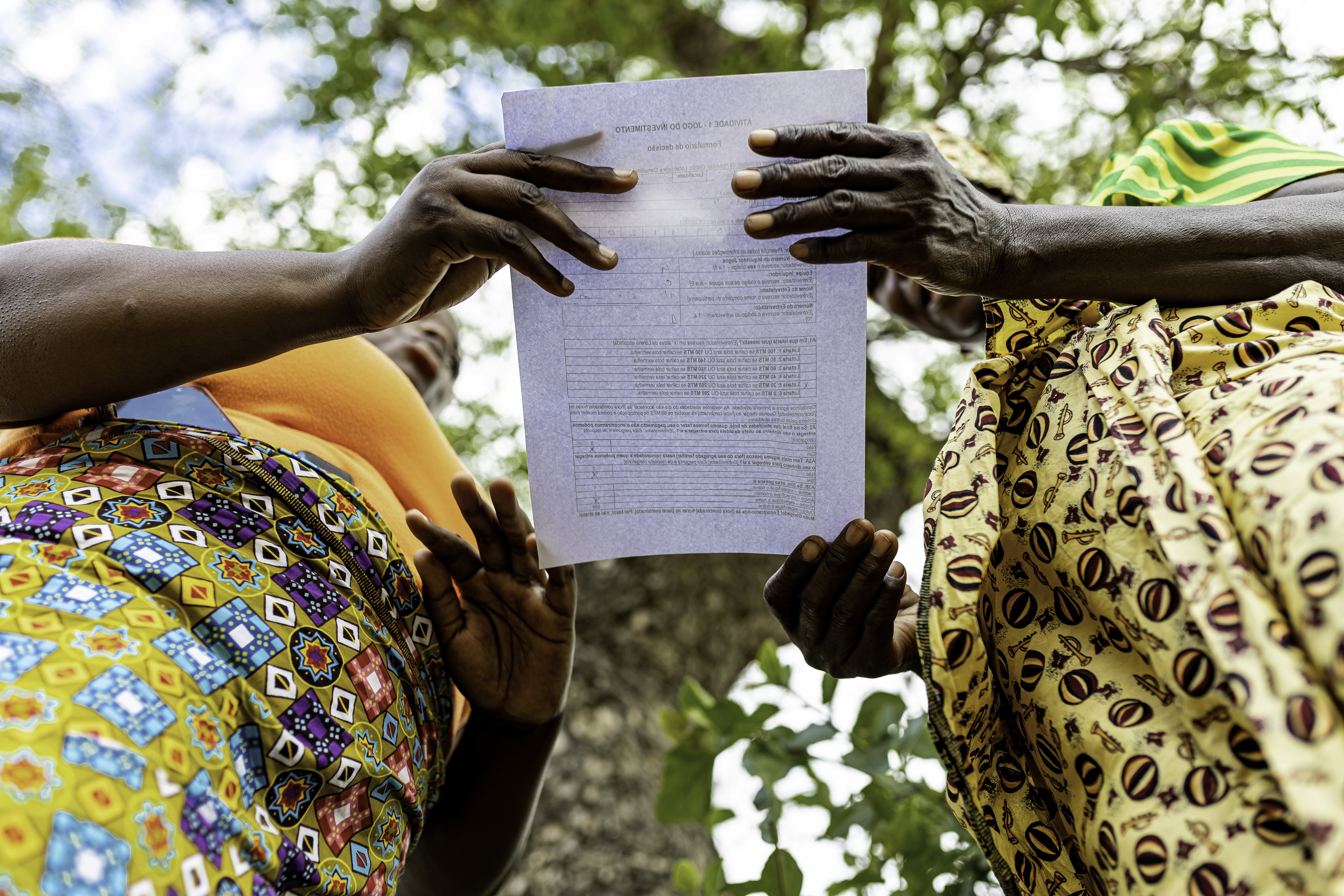
Working with our local implementing partner, Centro de Estudos de Economia e de Gestão (CEEG) at the University Edoardo Mondlane in Maputo, the fieldwork involves five research teams, each consisting of four enumerators and a supervisor, with Rachel Coelho providing the overall fieldwork coordination. Over several months, the teams visit 200 villages in the southern Mozambican provinces Inhambane, Gaza, and Maputo, interviewing over 2000 households, village leaders, and elders.
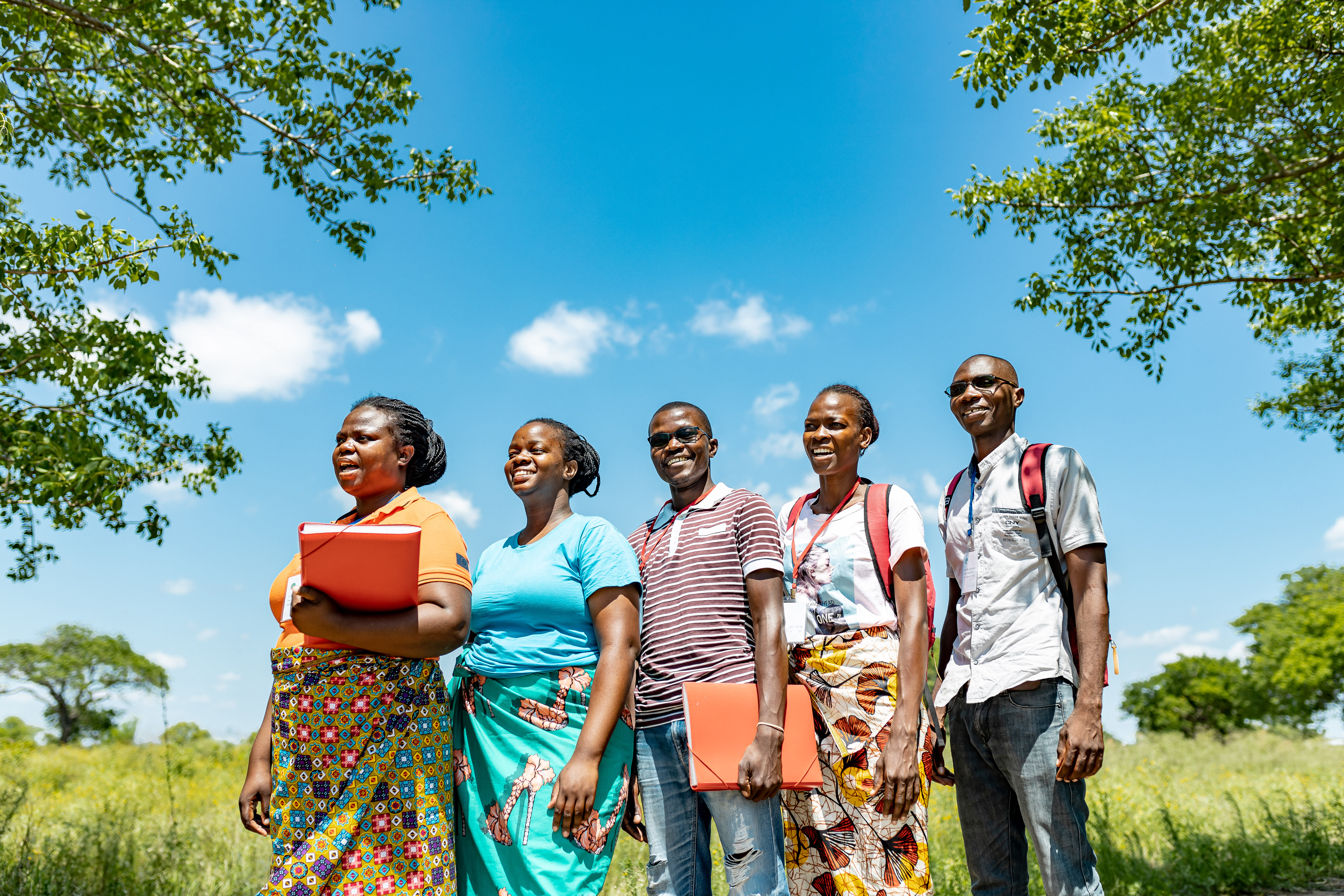
Early bird catches the data
The day starts early. The team sets off at dawn aiming to reach the target village and catch the residents before they head to their fields for the day. Agriculture is the main means of subsistence in this area, with cassava, beans, maize, and sugarcane being the most popular crops.
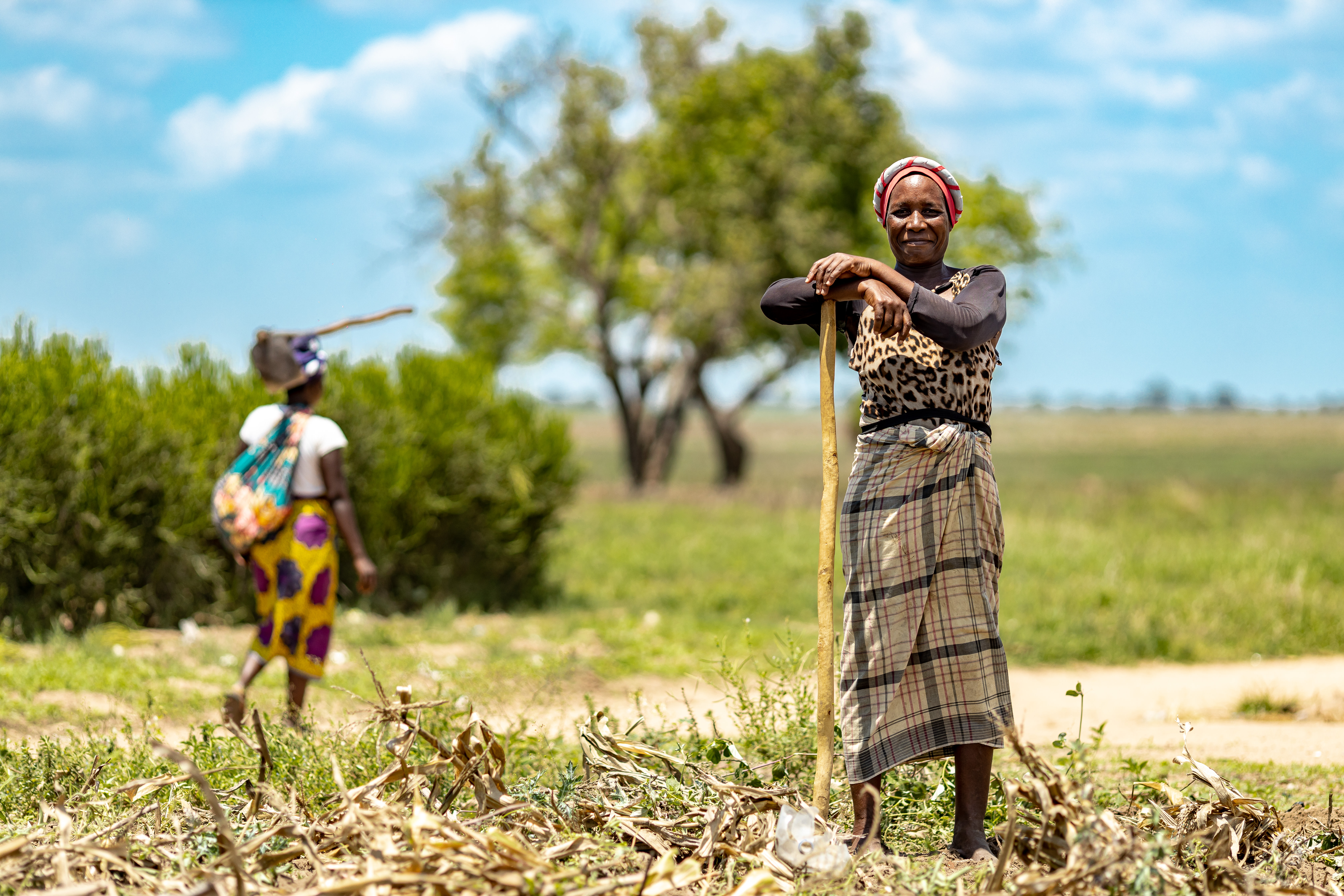
On arrival in a new village, the team supervisor visits the village leader to seek his approval for the research to begin. They explain the aims of the research and introduce the team. When the village leader’s blessing is granted, the enumerators set off to recruit village residents to take part in the research.
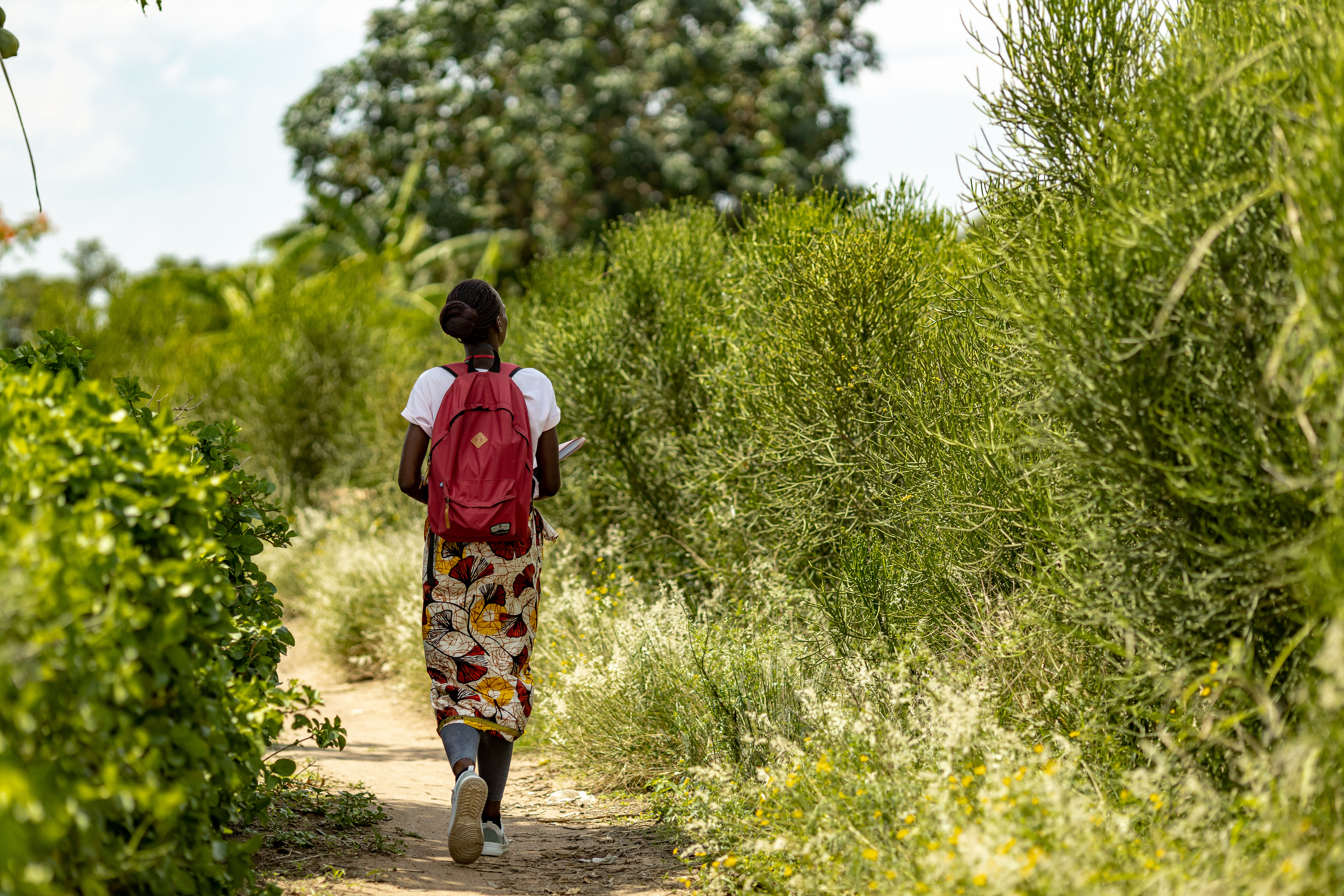
Even in the morning, the temperature can reach close to 30 degrees Celsius. A shady tree provides a perfect location for the hour-long interview. Even though Portuguese is the official language of Mozambique, it is only spoken by about half the population. The enumerators are locally recruited so they are able to communicate with the villagers in their own local language. There are over 40 languages spoken in the country.
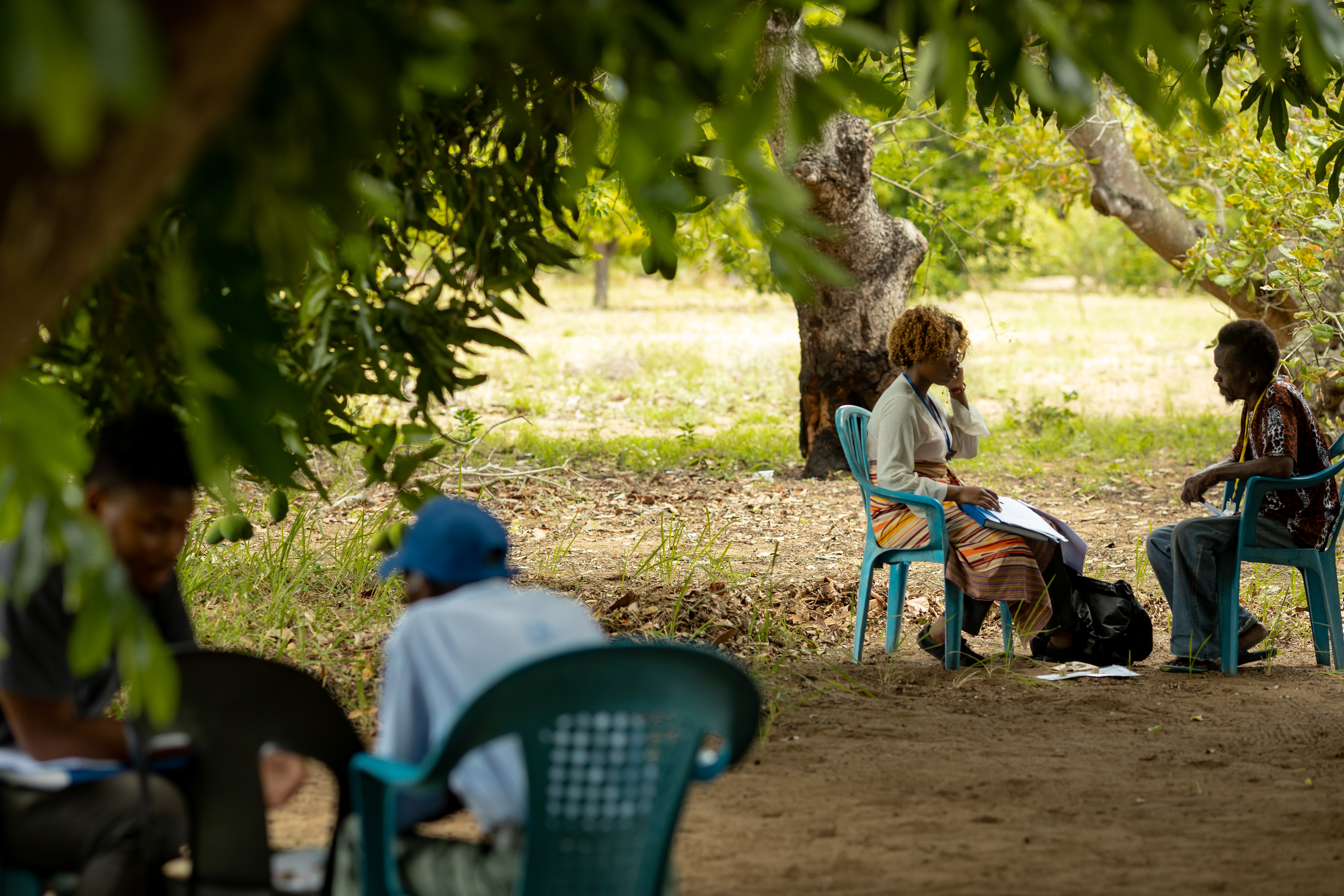
The questions in the household survey focus on the long-term impacts of colonial institutions on present-day attitudes and cooperation, trust towards individuals and institutions, risk-taking behaviour, and gender norms. Data is collected on a tablet and, for the analysis, the core research team consisting of Patricia Justino, Rute Martins Caeiro, and Sam Jones will use a regression discontinuity framework, comparing outcomes from individuals inside and outside the historical cotton concessions.
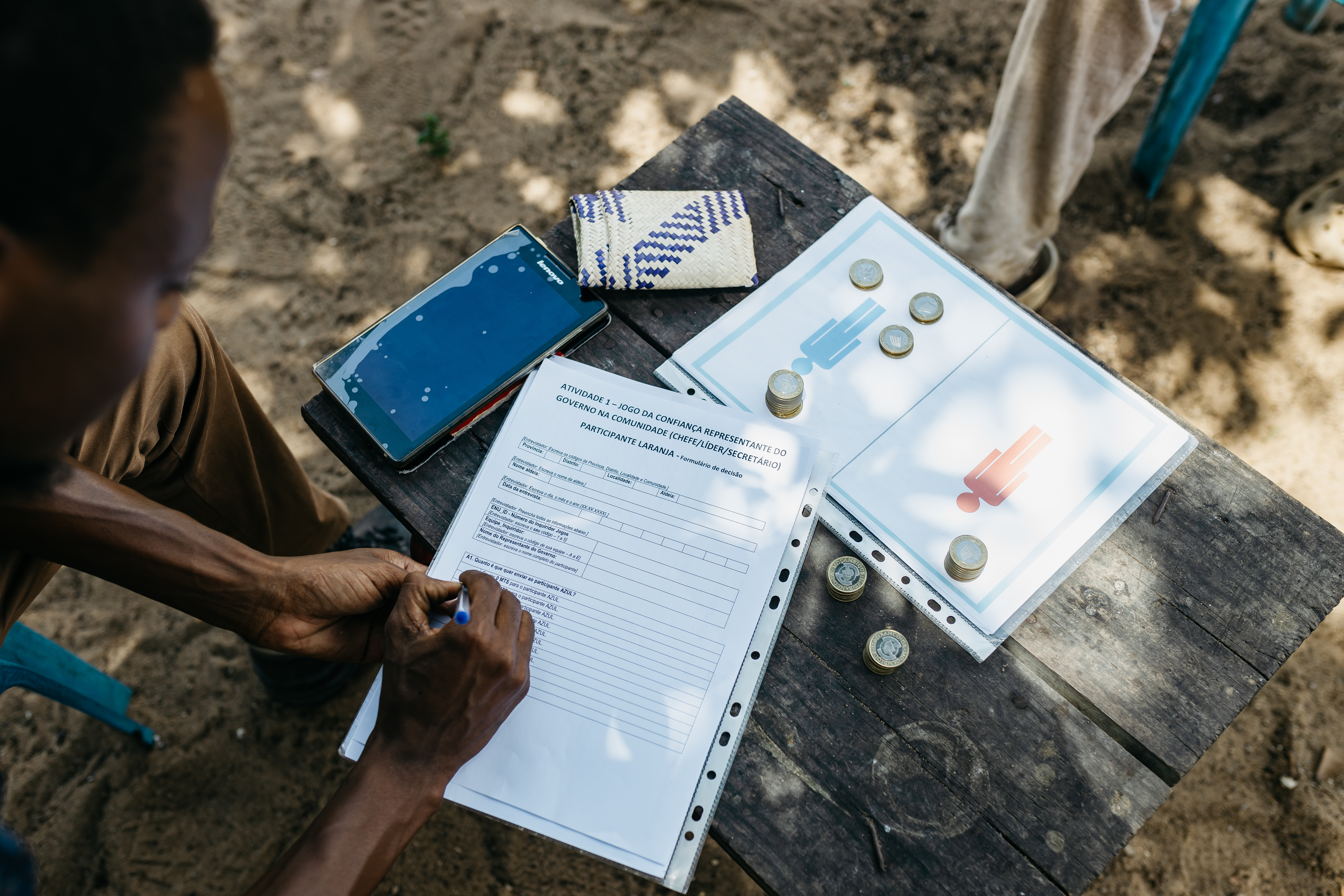
Game on!
The second part of the data collection involves incentivised experimental games, called risk, trust, public good, and matching grant. Some of them are played individually while others are played in groups. For each game, respondents receive a sum of money, which they use to play the games.
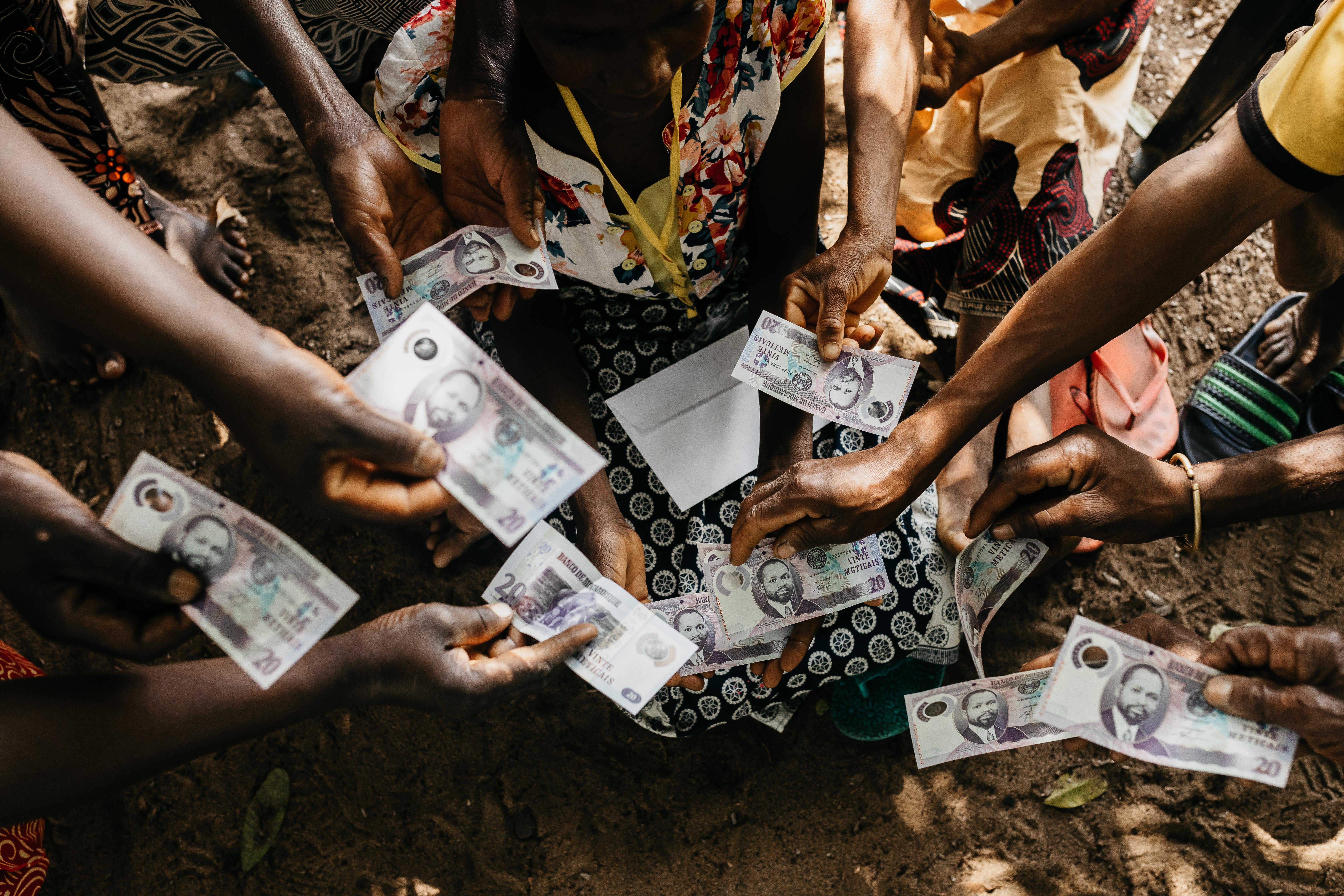
The outcome of the game is determined by decisions the respondents make, and the results are used to assess their behaviour related to various aspects of trust, social cohesion, gender norms, and risk-taking.
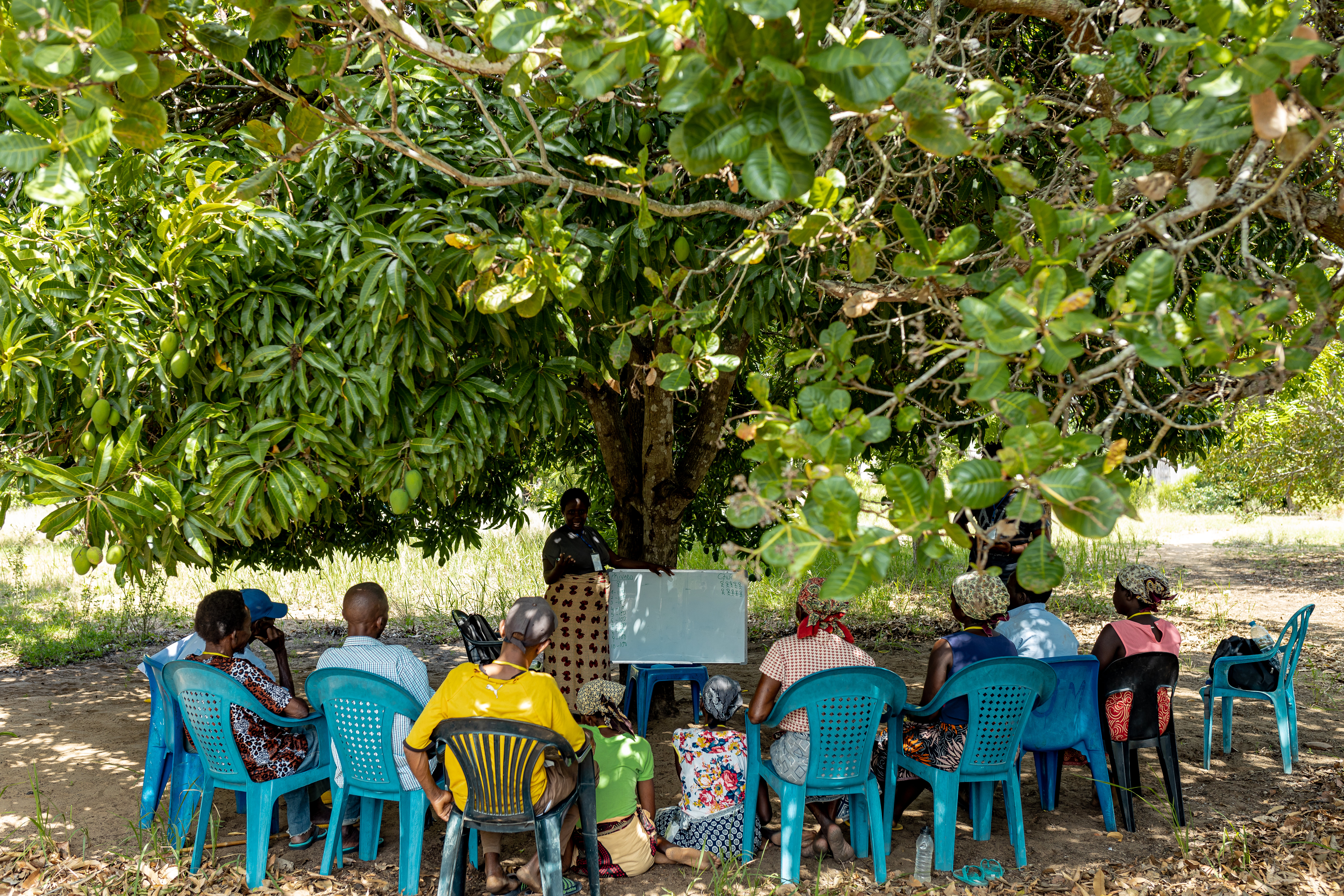
The design of the games is simple and does not require literacy. This is particularly important in the Mozambican context, where adult literacy is currently at 63% (World Bank, 2021).
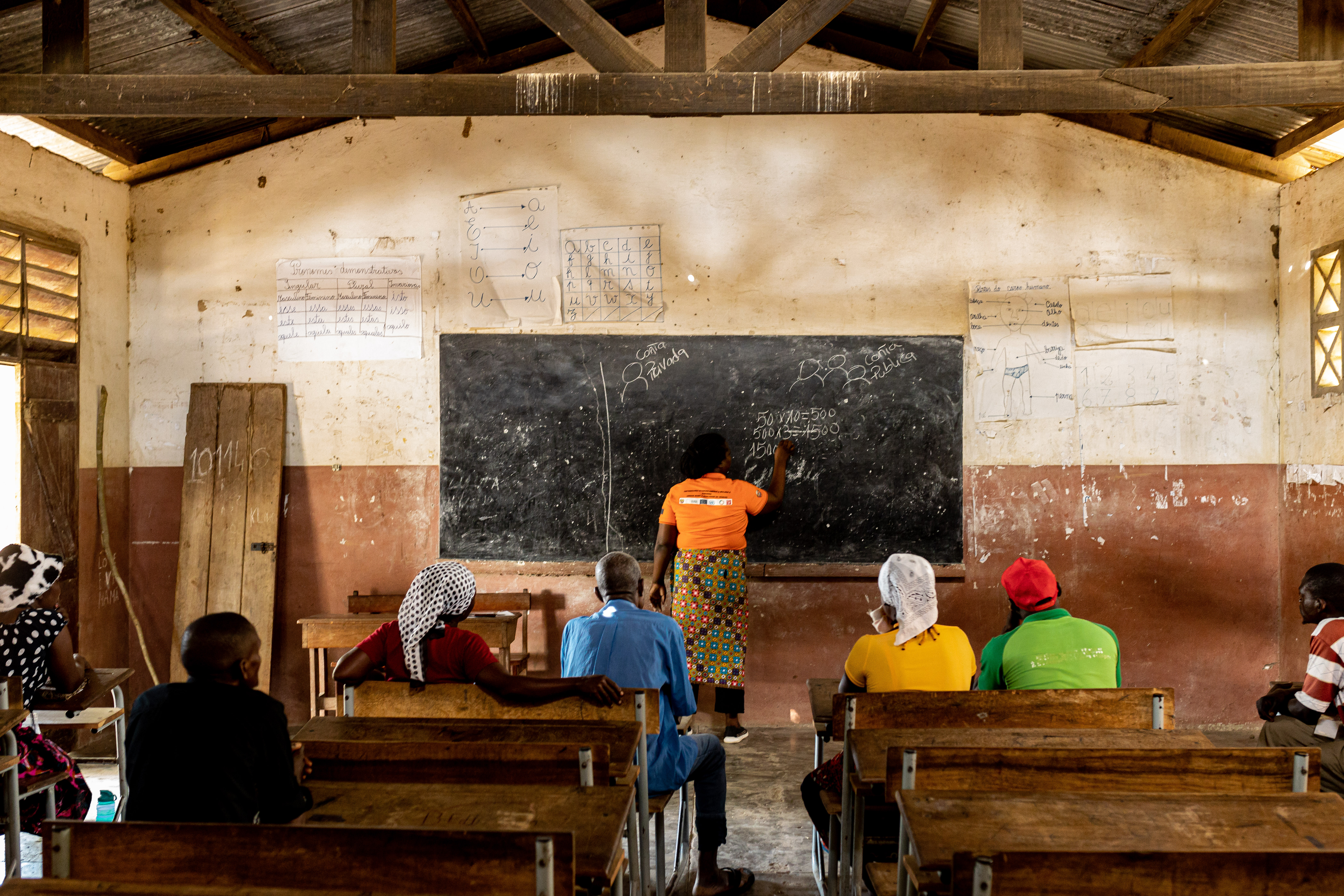
The long day has come to an end, and it is time for our team to wave goodbye to everyone. Another village awaits tomorrow.
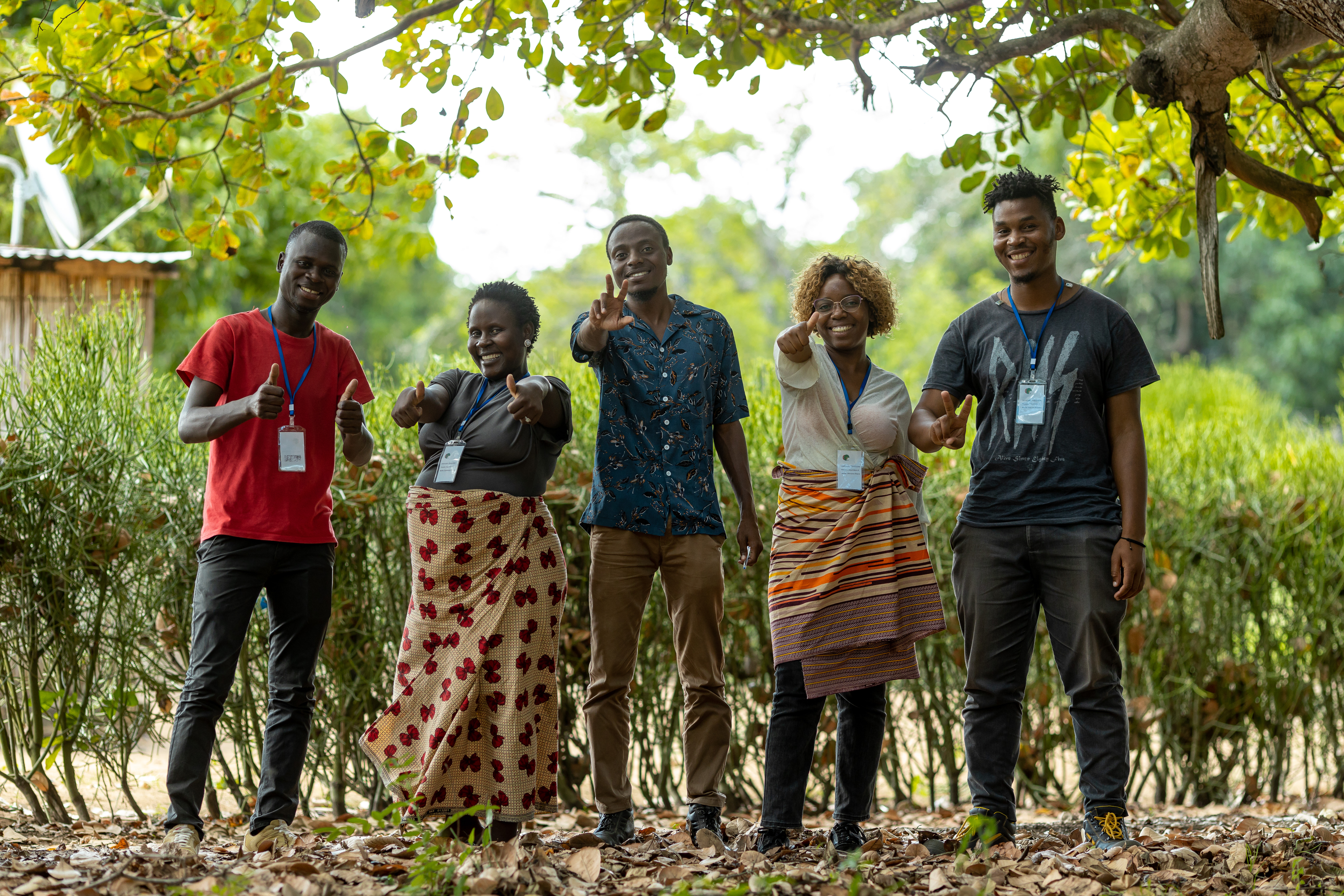
Inequality and governance in unstable democracies – the mediating role of trust is an ongoing project implemented by a research consortium led by the Institute of Development Studies in the UK, with UNU-WIDER as a core partner leading on the project’s Mozambique case study. Funded by the UK Economic and Social Research Council, this £2.5 million project seeks to provide new theoretical insights and empirical evidence on how trust within and between social groups and towards institutions shapes the relationship between economic inequality and governance in contexts where democratic structures may be unstable or under threat. In Mozambique, the project aims to generate new evidence on the long-term impacts of colonial institutions on present-day attitudes and social cohesion.
The views expressed in this piece are those of the authors, and do not necessarily reflect the views of the Institute or the United Nations University, nor the programme/project donors.
Photos: Mbuto Machili for UNU-WIDER. Copyright UNU-WIDER
 Join the network
Join the network


